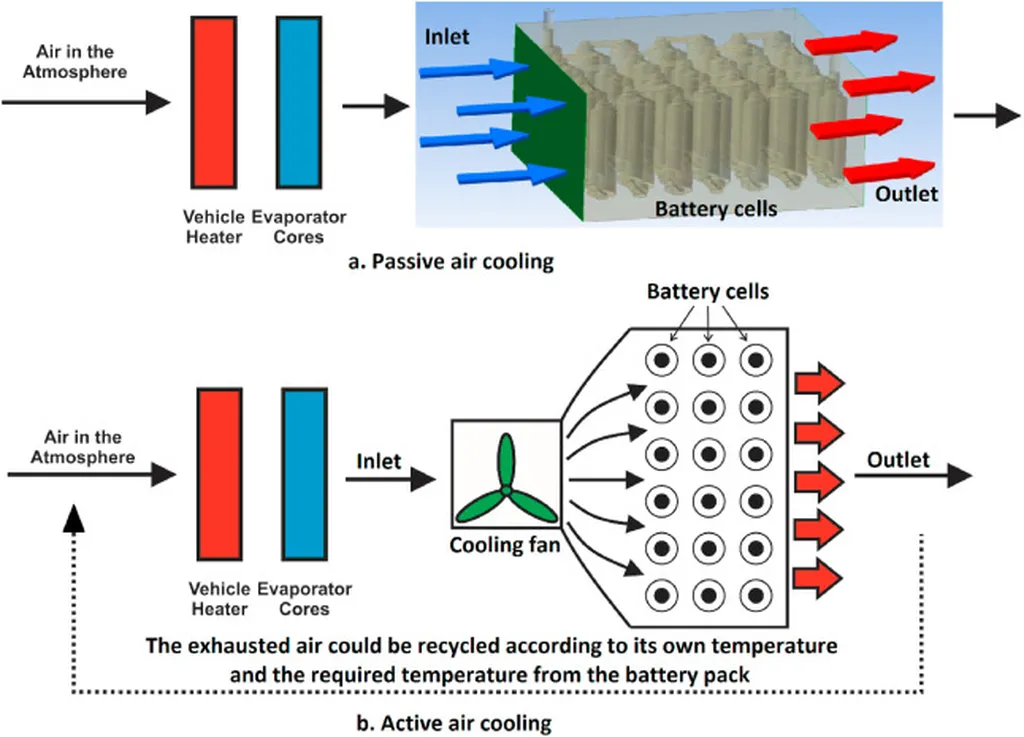In the quest to make electric vehicles (EVs) as convenient as their gasoline-powered counterparts, researchers are tackling one of the most significant hurdles: rapid charging. A recent study published in “Case Studies in Thermal Engineering” offers a promising solution to the thermal challenges that accompany fast battery charging, potentially revolutionizing the EV industry and energy storage sector.
The research, led by Abubakar Gambo Mohammed from the Institute of Sustainable Energy at Universiti Tenaga Nasional in Malaysia, explores a novel battery thermal management (BTM) scheme that combines gallium-based phase change material (GaPCM) with air cooling. This innovative approach aims to mitigate excessive heat and performance degradation during rapid charge and discharge cycles of lithium-ion batteries (LiBs).
Mohammed and his team comprehensively analyzed various factors influencing thermal performance, temperature distribution, and power consumption. Their findings reveal that increasing the diameter of flow ducts and the spacing between the battery casing wall and the battery itself improves heat dissipation and temperature distribution. However, this comes at a cost—power consumption can increase up to 98 times.
“Wider airflow passages adjacent to the phase change material reduce power consumption by up to 62.8%, but they also result in higher peak temperatures,” Mohammed explained. This trade-off highlights the delicate balance between optimizing thermal management and maintaining efficient power usage.
The study also found that thicker layers of PCM enhance heat conduction pathways, retaining higher thermal capacity under fast discharge conditions. However, unequal distribution of inlet ducts showed that fewer inlets reduce cooling efficiency, while more inlets significantly increase power consumption—up to 72 times.
Higher inlet velocities, while enhancing heat transfer and temperature uniformity, require up to 246 times more power. These findings underscore the complexity of designing effective thermal management systems for rapid charging applications.
The implications of this research are substantial for the energy sector. As the demand for EVs continues to grow, the need for efficient and rapid charging solutions becomes increasingly critical. Effective thermal management is key to ensuring the longevity and performance of Li-ion batteries, which are central to the EV revolution.
Mohammed’s work not only addresses the immediate challenges but also paves the way for future developments in battery technology. By understanding the intricate relationships between various design parameters, researchers and engineers can develop more robust and efficient thermal management systems. This, in turn, can accelerate the adoption of EVs and contribute to a more sustainable energy future.
As the energy sector continues to evolve, innovations like those presented in this study will play a pivotal role in shaping the landscape of energy storage and electric mobility. The findings offer a glimpse into the potential of advanced thermal management techniques, setting the stage for further advancements in the field.

